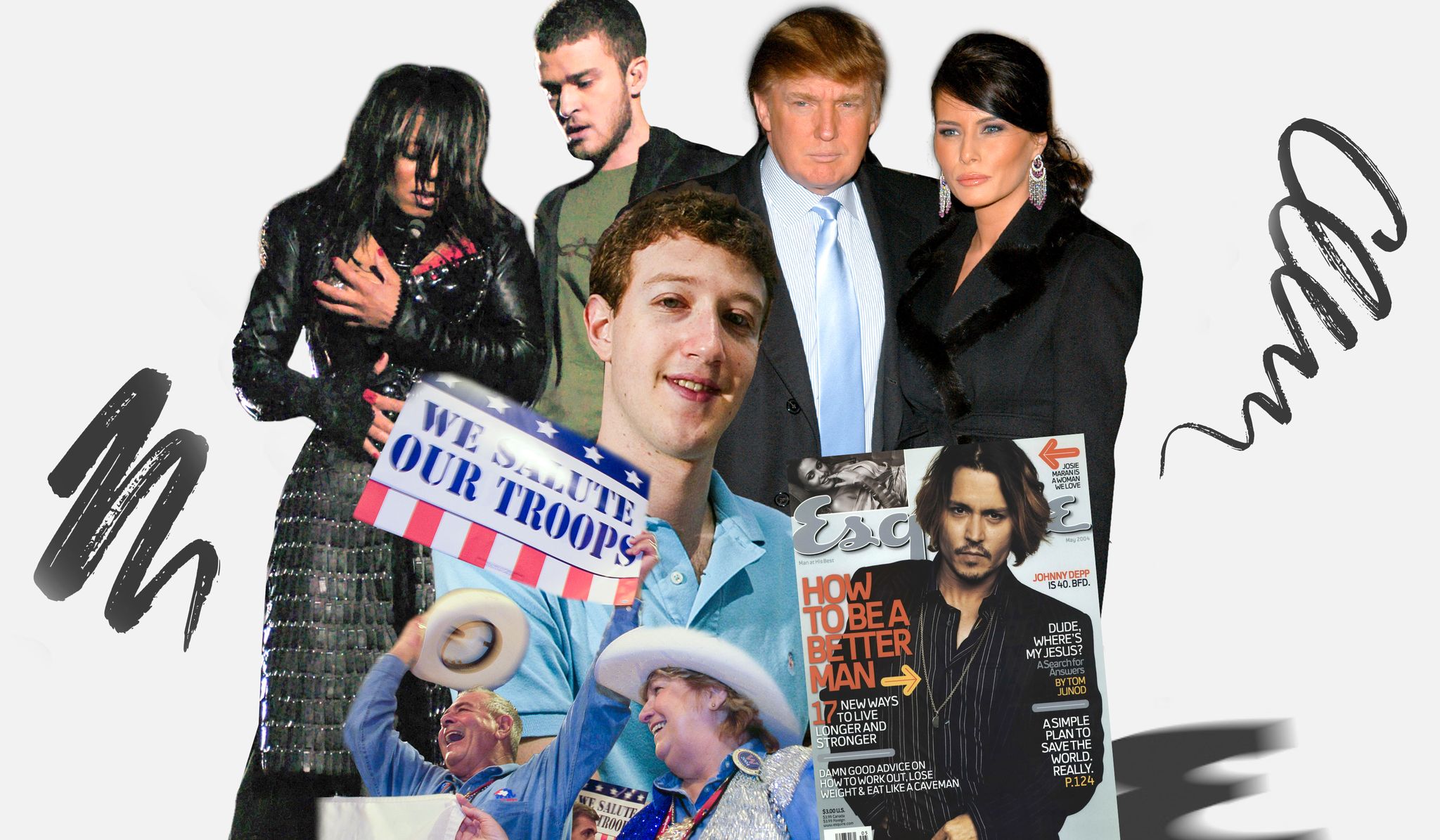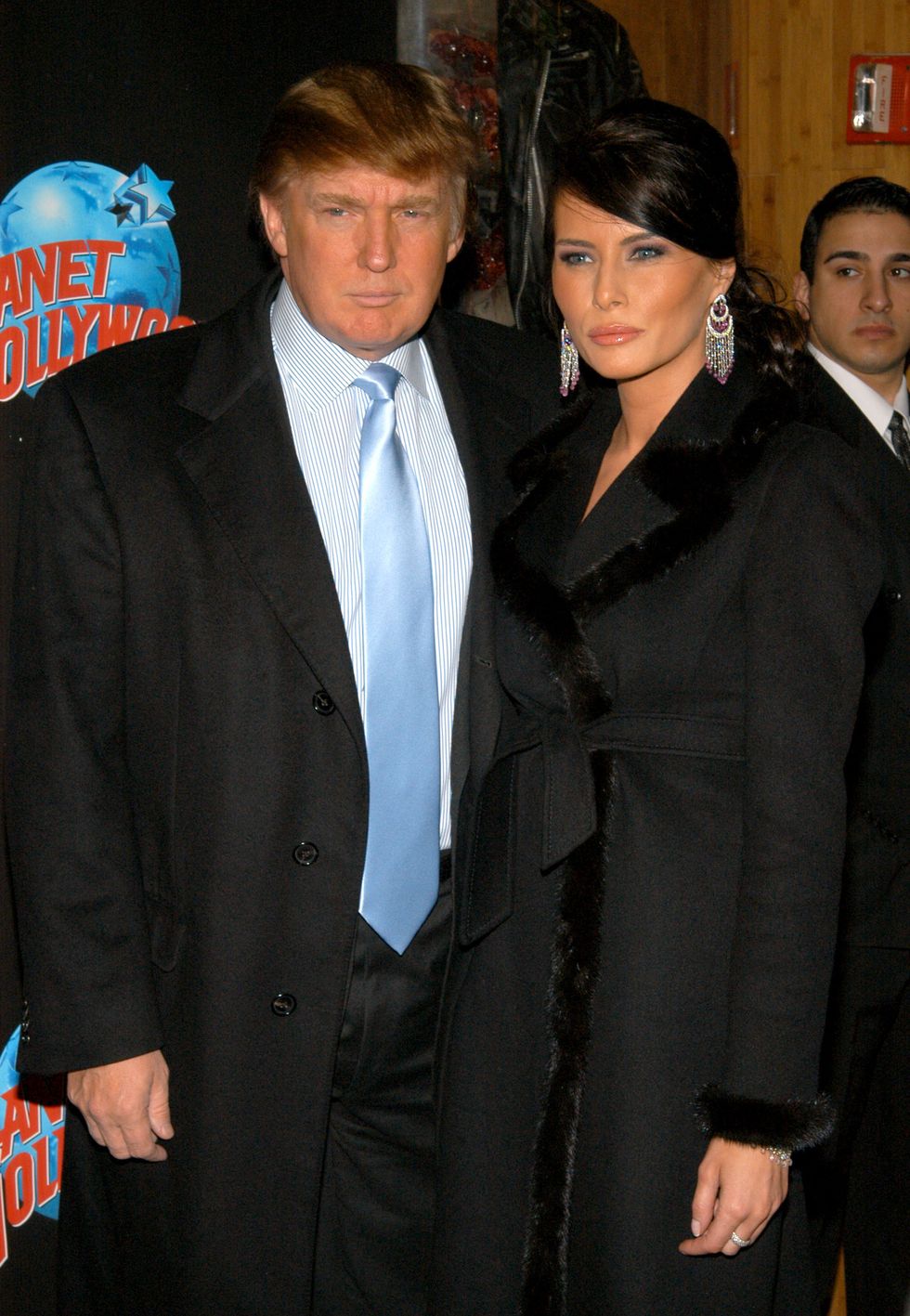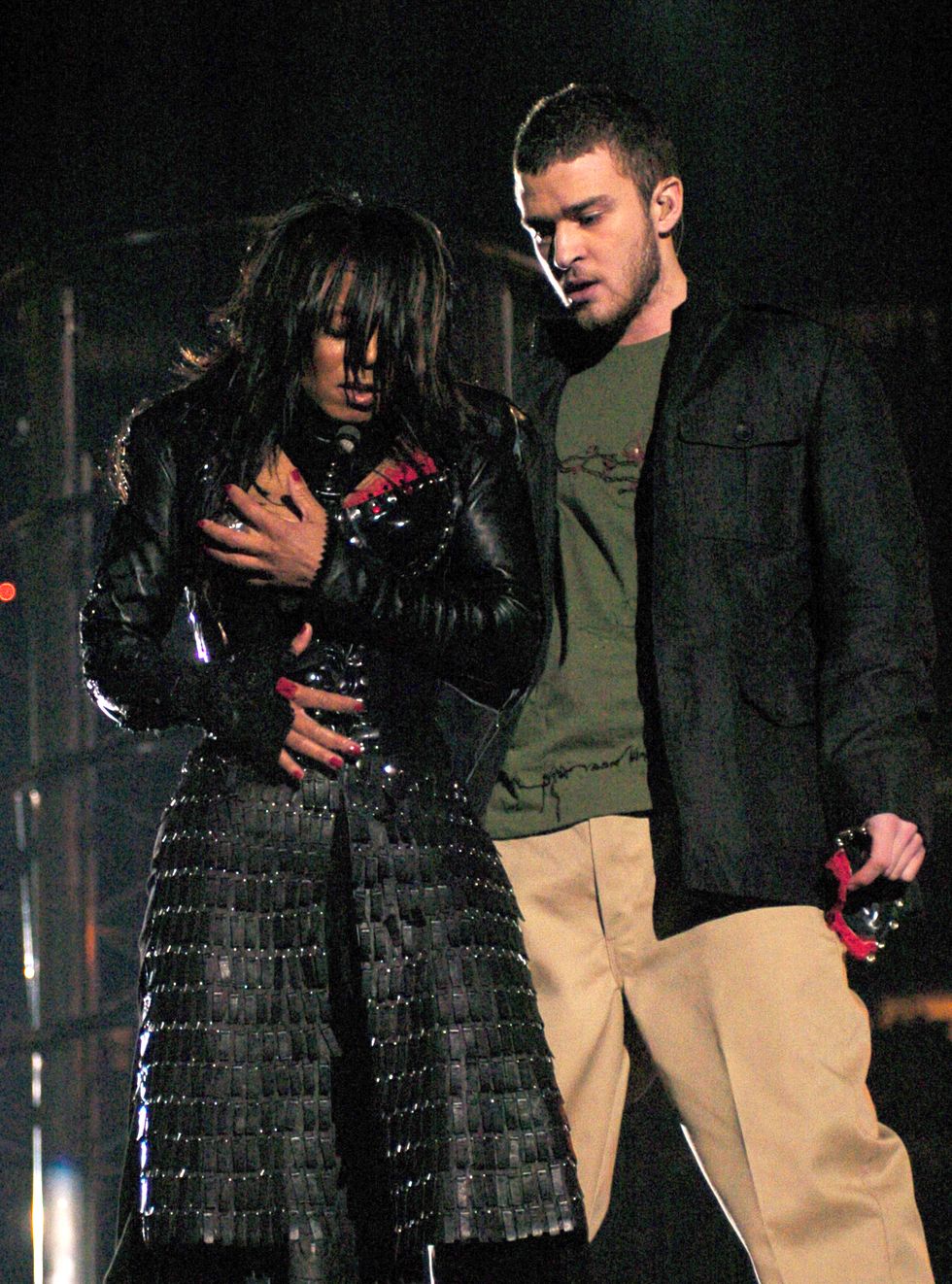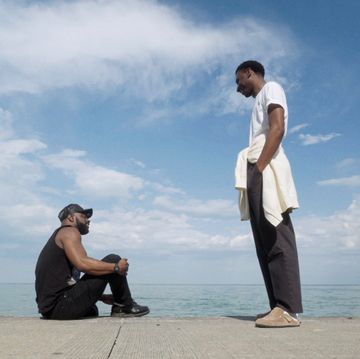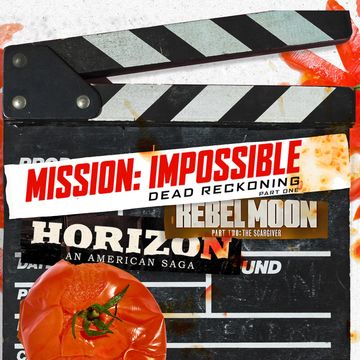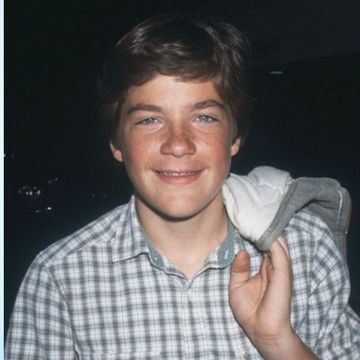By 2004, I had lived in Los Angeles for a full year. One February night, I was walking to my car after dinner with some new friends. Two minutes into the four-minute walk, I thought, It is actually cold right now. Thirty seconds later, I couldn’t feel my fingers or the tops of my ears. This must be a record cold snap, a climate catastrophe out of The Day After Tomorrow, which wouldn’t even be out until that May. Then I got in my car and cranked the heat; the dashboard told me the outside temperature, 59 degrees.
One year in L.A. had made me soft. The move west that had seemed like a new start was inexorably changing me into a person who asks the waiter to turn on the patio heat lamp in July. At least I wasn’t wearing a Von Dutch hat.
My creeping acclimation to SoCal weather, unnoticed until I nearly died of exposure on a short-sleeves evening, is America in microcosm. We notice catastrophes—natural disasters! the election of Donald J. Trump! Saltburn!—but ignore the inciting events. We should perhaps work on this, because I’m good on catastrophes for a minute.
So here’s an idea: Of all the 20th anniversaries this year (Mean Girls! Napoleon Dynamite! J-Kwon’s “Tipsy”!),the most significant is this: 2004 was the year that set our national unraveling in motion. We didn’t feel our brains breaking at the time, and therein lies the problem. We got angry at the wrong people (Janet Jackson), shrugged off dangerously precedent-setting practices (swiftboating), and entertained ourselves to death with the things that would be our undoing (Facebook, Donald J. Trump). Now our brains are shattered, but maybe by looking back at this momentous year, we can train them to notice the warning signs. It might be the only way out of this mess.
Here, in no particular order because they are tied for worst, are some of the events of 2004:
_Mark Zuckerberg launched TheFacebook.com, at first exclusively for college students, and trust me on this: When we found out about it, those of us not in college thought, Give us this! We were on the ascendant MySpace back then, choosing a top eight and a theme song with great care. (“Superpowers” by the Dismemberment Plan, thanks for asking.) Social media seemed like a fun way to connect with old friends, make new ones, and low-key hit on both. We had no idea that Facebook would bring on the near destruction of global media and American democracy, that Instagram would spark a mental-health crisis among teens, that Twitter would charge a monthly fee, and that people would actually pay for the freshest Nazi content.
_Reality TV was at an early peak in the wake of Fox’s Joe Millionaire (women vied for a shot at a rich hot guy who was in fact a poor hot guy). Deception was the name of the reality game—on Bravo’s Boy Meets Boy (the gay Bachelor, except half the contestants were straight!), Fox’s Playing It Straight (The Bachelorette, except most of the contestants were gay!), and, most insidious of all, NBC’s The Apprentice (contestants competed for a job with Donald J. Trump, who is neither as rich as he says nor hot).
_The words “wardrobe malfunction” entered the vernacular. At the end of the MTV-produced Super Bowl halftime show with Justin Timberlake and Janet Jackson, a breast was exposed and a nation was scandalized, even though nobody had a TV with high enough resolution to see anything but a blur. If you did see a nipple, it’s because it was freeze-framed on a nightly-news piece about your outrage over having seen a nipple. It was a controversy because people said it was a controversy, a sin that stayed in the news for cycle after cycle. Jackson took the blame and the shame—top Viacom executive Les Moonves reportedly demanded an apology, which she refused to give, and suddenly her presence on Viacom properties was noticeably diminished—while Timberlake’s career soared. (He was permitted to bring sexy back only two years later!) JT himself will now tell you he thinks he should have done more in the moment, and we agree, and we relate; the May 2004 Esquire bore the headline "How to be a better man," with an arrow pointing at our cover Better Man . . . Johnny Depp. Listen, Justin: We were all learning.
_The “Support the troops or you hate America” mentality left over from the first Iraq war had temporarily claimed the careers of the (Dixie) Chicks only a year before, but in 2004 we began to see the little asterisk at the end. Ask Gold Star mother and object of Rush Limbaugh ridicule Cindy Sheehan, whose son Casey was killed in action that year. Ask the family of former Arizona Cardinal and Army Ranger Pat Tillman, killed by friendly fire and exploited thereafter. Ask John Kerry; Swift Boat Veterans for Truth was formed in 2004 to throw some haze into his biography, even though the veterans who’d served in Vietnam with him denied the group’s allegations. Swiftboating became a verb the same year, and it worked like a charm in what was a relatively stable news and information environment. I don’t know what swiftboating to the power of x will look like, but we’ll soon find out.
Anniversaries often celebrate events that have propelled the world forward: 2024 marks the 55th anniversary of Neil Armstrong’s walk on the moon, the 35th of the fall of the Berlin Wall, the 30th of Pizza Hut’s PizzaNet (the first pizza-delivery site). This year’s 20th anniversaries feel different. From here, the big events of 2004 don’t feel like innovations so much as the first tiny cracks in our collective foundation. We didn’t see them until the cracks widened and deepened, and now the floors are sloping and the walls are askew.
We fucked around; now we’re finding out. And I don’t know about you, but I’m freezing.
More Essential Columns From Dave Holmes:
